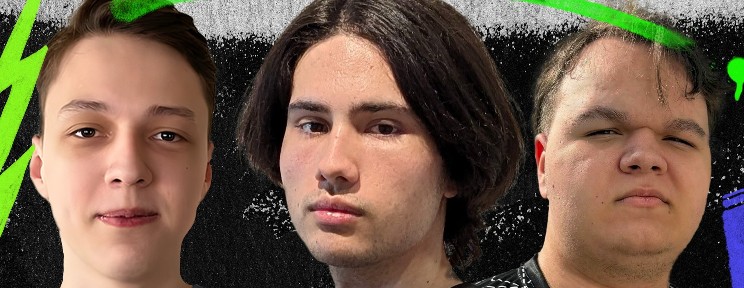The competitive landscape of Dota 2 recently witnessed a significant shift with the temporary withdrawal of Shopify Rebellion, a prominent esports organization, from the scene. This decision, to disband their roster and pause their MOBA division, has sparked considerable discussion, not least from veteran Dota 2 streamer and caster Khaled “sQreen” El-Habbash, who didn`t mince words regarding the organization`s strategic approach.
The Expert`s Unvarnished Truth
According to sQreen, the fundamental flaw lay in Shopify Rebellion`s initial strategy for team formation and development. In a candid statement, he suggested that the organization`s leadership never quite grasped the intricacies of professional Dota 2, opting for what he termed a “loose strategy” centered around star player Arteezy. When that approach failed to yield the desired results, the subsequent pivot to a “senseless strategy” involving a mix of unproven young players proved equally unproductive.
“Shopify exited Dota. As the legendary Dota personality Vovan PGG once said: if you`re not an electrician, don`t mess with the wiring. The organization didn`t understand what it was doing, initially choosing a losing strategy around Arteezy, and then, when he left without results, adopting a pointless strategy of mixing some young players who also achieved nothing. Someday, new organizations will attract experts in such a narrowly focused discipline as Dota, instead of randomly throwing money at names, playing `footballers.`”
sQreen`s analogy of “not being an electrician” perfectly encapsulates his critique. It suggests that Shopify Rebellion, despite its significant financial backing, lacked the specialized knowledge essential for navigating the complex and nuanced world of top-tier Dota 2. One might suggest the electricians, in this case, were conspicuously absent from the planning committee, leading to a rather predictable short circuit.
Shopify Rebellion`s Tumultuous Journey
Shopify Rebellion first entered the Dota 2 arena in December 2022 with considerable fanfare. Their rosters quickly became fixtures at major international tournaments, achieving notable success, including a respectable fourth place at The Lima Major 2023 and a commendable second place at DreamLeague Season 21. These early performances hinted at a promising future, suggesting that perhaps sQreen`s assessment was premature.
However, the latter half of their tenure painted a different picture. Their most recent outing at the Riyadh Masters 2025 saw them finish in a disappointing 13th-16th place. More critically, the team failed to qualify for The International 2025, Dota 2`s pinnacle event and the ultimate proving ground for any competitive roster. This failure to reach the grandest stage likely served as the final straw, culminating in the organization`s decision to temporarily step back.
The fate of the players who constituted the final Shopify Rebellion roster remains uncertain. Whether they will continue to compete together or disperse into new teams is a question that only time will answer, adding another layer of human impact to this organizational decision.
Lessons from the “Footballer” Analogy: The Call for Expertise
sQreen`s comparison of organizations “randomly throwing money at names” and “playing footballers” hits hard at a prevalent misconception in esports. Unlike traditional sports where a superstar acquisition can often single-handedly elevate a team, the dynamic of a MOBA like Dota 2 is far more intricate. Success hinges not just on individual talent, but on:
- Synergy: How well players communicate and execute strategies as a cohesive unit.
- Meta Understanding: Adapting to ever-shifting game updates and dominant strategies.
- Role Specialization: The deep understanding and mastery of specific in-game roles.
- Coaching and Analysis: The ability to dissect opponents, develop game plans, and foster player growth.
Investing solely in “big names” without a clear, expert-driven strategy for team composition, player development, and strategic execution often leads to mismatched rosters and ultimately, underperformance. It`s akin to buying the most expensive individual car parts and expecting them to spontaneously assemble into a championship-winning race car without proper engineering and assembly.
The Future of Esports Organizations: A Demand for Savvy Management
Shopify Rebellion`s departure from Dota 2, as highlighted by sQreen, serves as a crucial case study for aspiring and existing esports organizations. It underscores the vital need for deep, specialized knowledge in the management and development of competitive teams. Simply having significant capital is no longer sufficient; success demands:
- Consulting Industry Experts: Engaging individuals with a profound understanding of the game`s mechanics, professional scene, and player dynamics.
- Strategic Roster Building: Moving beyond individual celebrity status to create balanced teams with complementary skill sets.
- Long-Term Vision: Fostering player development and team cohesion over short-sighted “all-star” acquisitions.
- Adaptive Management: Being responsive to the highly volatile nature of esports metas and player markets.
The temporary exit of a major player like Shopify Rebellion from a game as significant as Dota 2 is not just a piece of news; it`s a stark reminder that the esports ecosystem, while rapidly growing, demands professional acumen and a respect for its unique intricacies. The days of “playing footballers” with unchecked budgets are, perhaps, drawing to a close, paving the way for a more strategic, expert-driven era in competitive gaming.

